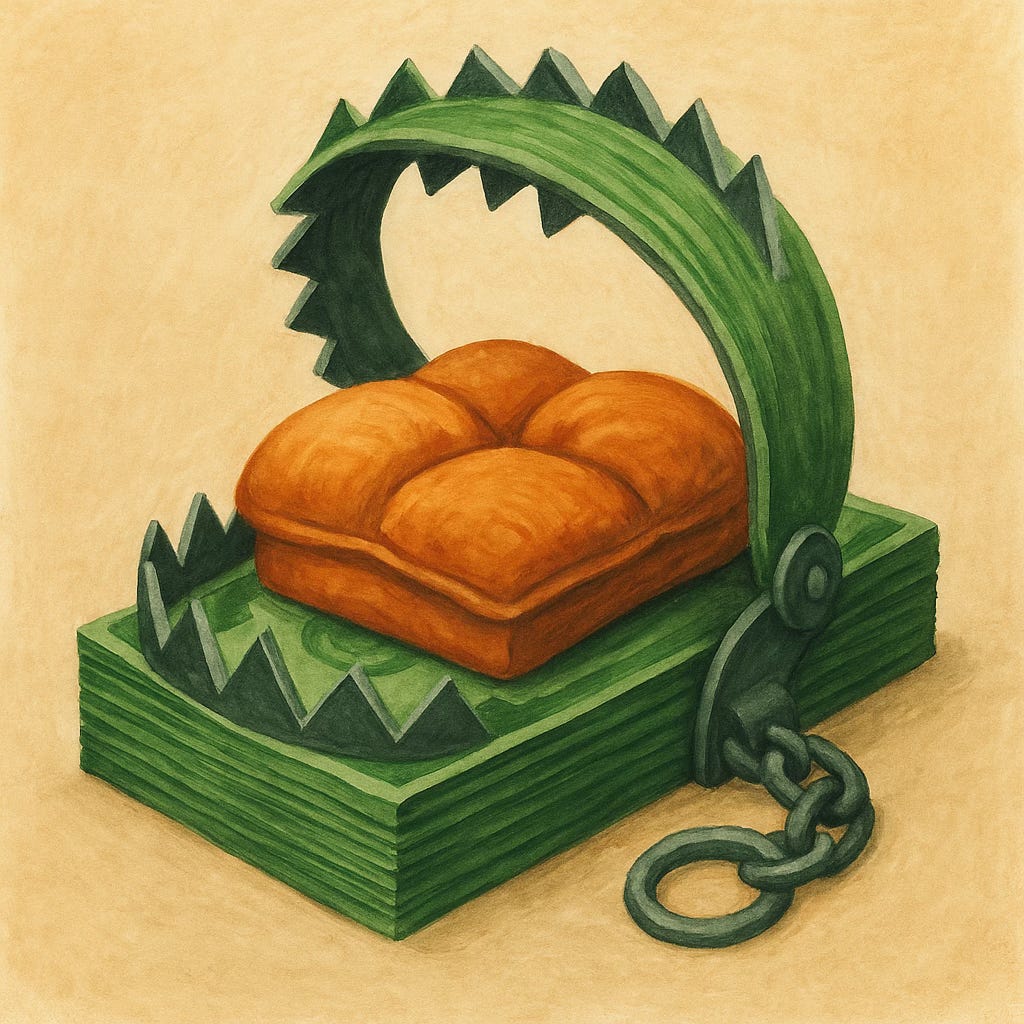We live in an age where debt has been naturalized, where the burden of borrowing has become almost invisible, and where financial chains are sold to us under the promise of liberation. Credit cards whisper of possibilities, mortgages offer security, and student loans promise upward mobility. The story is one of empowerment—yet beneath the surface, it is an intricate illusion. What we borrow is rarely just money; we borrow fragments of our future selves, mortgaging time, freedom, and even relationships.
This essay aims to dissect the illusion of debt, not merely in financial terms, but as a psychological and cultural phenomenon. Debt has become an architecture of desire, a scaffolding of dreams we cannot yet afford but desperately want to inhabit. And in this architecture, each brick is mortared with hidden costs: stress, lost autonomy, and the pressure of a life already promised to repayment schedules. The central paradox is this: debt pretends to offer us more life, but in reality, it often reduces the space of possibility.
The conversation here is not about demonizing debt outright—it has enabled growth, education, and survival for countless individuals. Rather, the point is to unveil the subtle ways in which debt shapes our identity and our choices. When borrowing becomes habitual, it ceases to be a bridge to opportunity and instead becomes a fog through which we navigate our existence, barely aware of how distorted our vision has become. The debt illusion, then, is not about the numbers we owe, but about the invisible narratives we internalize.
For readers who wish to go deeper into this reflection, subscribing will not only provide access to the full set of essays but also allow you to engage with a growing community reflecting critically on money, identity, and freedom. These writings are an invitation to pause, rethink, and reconstruct our relationship with financial systems that shape far more than our bank accounts—they shape who we become.
Keep reading with a 7-day free trial
Subscribe to Badis Tabarki to keep reading this post and get 7 days of free access to the full post archives.

